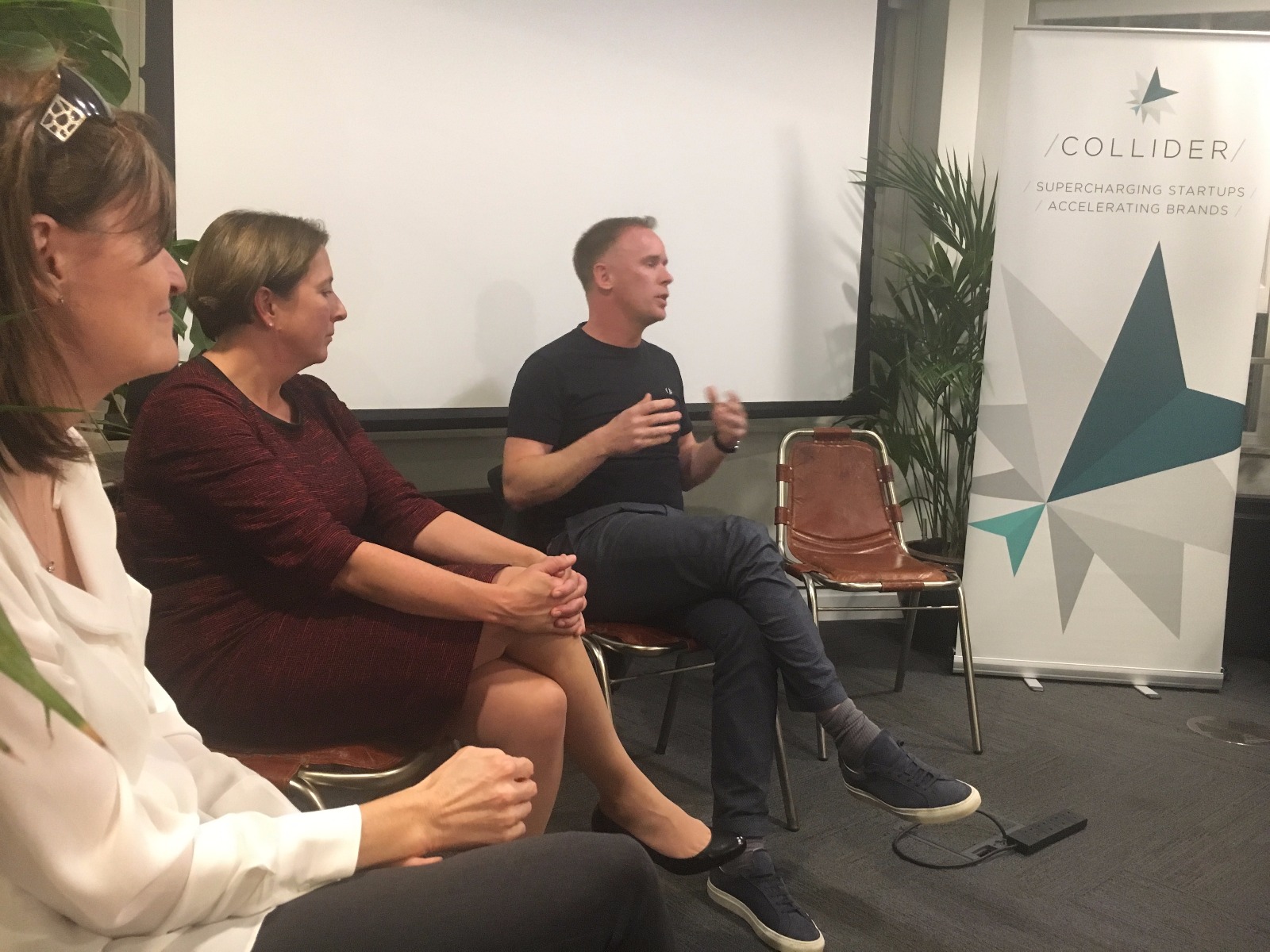There are only a few days left until our applications close for our next round! If you haven't yet applied, get yourself over to f6s.com/collider13 for the chance to work with Unilever, BBC Worldwide, CBS Outdoor, William Hill and Bauer Media. Good luck!
Google's Big Tent: Don't Be Evil
 During Google's Big Tent Event last week, the room didn't feel quite as welcoming as I had anticipated. In the weeks leading up to it, Google had been in the news for all the wrong reasons, and it seems even their most loyal supporters were feeling a tad disgruntled. Despite all the different themes and discussions the day had been arranged to discuss, there was only one issue on most peoples minds; Google's tax, or lack thereof. As Eric Schmidt was speaking towards the end of the day, there was an air of anticipation, and a need for direct questions to provide direct answers.
During Google's Big Tent Event last week, the room didn't feel quite as welcoming as I had anticipated. In the weeks leading up to it, Google had been in the news for all the wrong reasons, and it seems even their most loyal supporters were feeling a tad disgruntled. Despite all the different themes and discussions the day had been arranged to discuss, there was only one issue on most peoples minds; Google's tax, or lack thereof. As Eric Schmidt was speaking towards the end of the day, there was an air of anticipation, and a need for direct questions to provide direct answers.
Ed Miliband spoke before Eric Schmidt arrived, and Ed was crystal clear with his views on the matter.
[youtube http://www.youtube.com/watch?v=oaIeSU-P338?rel=0]
When Eric did arrive, Krishnan Guru-Murthy was quite blunt with his questions, and wouldn't let the matter go until Eric had given a few answers. However, once the floor had their chance to ask, the majority were all about tax. The Guardian had a live feed of the session, so you can read the questions and answers here. Perhaps the moment that gained the most amusement was when Schmidt had a slip of the tongue and accidentally said "Google is a capitalist country ... company. It's easy to say you would like us have less profits and have that somewhere else – we will comply with the letter of the law but we're trying to avoid being doubly and triply taxed which would prevent us investing in some of the wilder things."
 For now, the message from both Google and the government is clear. Which one will have the final word? To discuss this further, come along to our Down The Pub event on Wednesday 29th May.
For now, the message from both Google and the government is clear. Which one will have the final word? To discuss this further, come along to our Down The Pub event on Wednesday 29th May.
A New Report on Startups from Lord Young
[youtube http://www.youtube.com/watch?v=RQhmOXhgNUY?rel=0] In his second report to the Prime Minister, Growing your Business: A report on Growing Micro Businesses, Lord Young highlights the increasing importance that micro businesses (those which have less than 10 employees) have on the success of the economy. You can read the first report here, which focuses on the first steps to starting your own business.
Making up 95% of all businesses, Lord Young identifies that by helping startups develop their confidence and capability to grow, this also helps the UK to get ahead in the global race by supporting all the technological talent here.
Lord Young, the Prime Minister’s enterprise adviser, said: "We have one of the best environments in the world for the creation of new firms. What this report endeavours to do is to help and encourage all those new firms to now take on their first employees and grow.
"Growing our smallest businesses would transform our economy — they are the vital 95%. If just half of the UK’s micro businesses took on an additional member of staff, unemployment would be reduced to almost zero. We need to raise the aspirations and confidence of these businesses and give them the tools to grow."
The Government hopes to help thousands of new businesses get off the ground by expanding their startup loan scheme. By opening up £230 billion worth of public sector contracts to small businesses, will help boost growth and transform the economy.
One of the most important changes he recommend is to remove the age cap for the loan, which is currently set at 30 years old. This would open the scheme up to entrepreneurs that would otherwise struggle to secure the necessary finance and support can benefit.
Also, Lord Young conducted a live webchat from 10 Downing Street this morning with Simon Finch of Finch Installations, who recently secured a £9,000 Start-up Loan, and Anthony Lau, founder of Cyclehoop and 2009 winner of The Pitch. They discussed how business owners can grow a successful company, and you can read it all here.

Is Flexible Working the Future?
Imagine a work schedule not measured in hours, days, and weeks, but in tasks completed. Welcome to the new world of flexible working that combines the freedom of freelance with the financial security of full-time employment. Recent research has shown that a flexible schedule improves productivity, is actively cost effective, and encourages creativity. Sick days are also reduced and it helps build the company's reputation as a forward-thinking workplace that keeps employees happy.
So why are offices holding back on making the all-important change?
Insecurities are one of the main reasons, from the bosses (who worry about a lack of control) and the employees (who are concerned that their absent desk will promote negative attitudes). Breaking the 9-5 mentality is hard too, as our lives outside of work are also built around this schedule.
As new startups emerge, they have the power to decide how best to structure their time to fit their tasks.
The First #BrandDay with @Collider12
[gallery type="slideshow" ids="303,304,305,306,307,308"]
Great first #BrandDay at Ingenious Media with partner brands @Unilever, @creativeengland, @bauermedianews, @BBCWLabs, @BoschAppliances, @cbsoutdoor and @williamhillnews, and advisors @KSTechnology and @TaylorWessing.
The awesome @Collider12 startups are, @HitMeUpApp, @locomizer, @Moment_Us_, @avocarrot, @seekerind, PlayDibs, @MiappiApp, ADDICO and @whichsocial.
It was great to see the beginnings of this productive collaboration.





